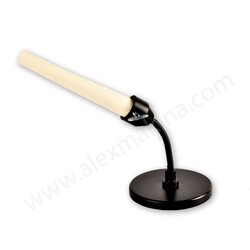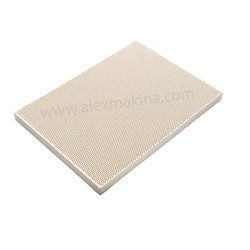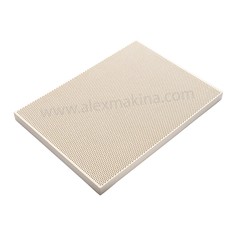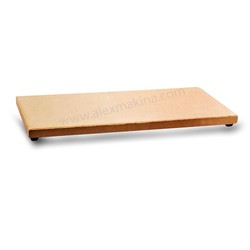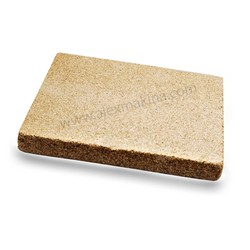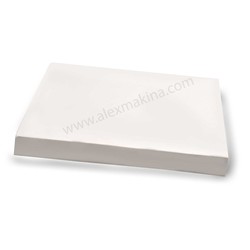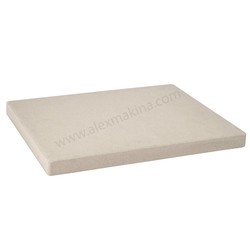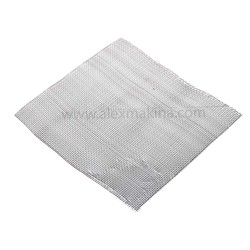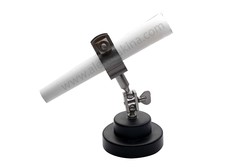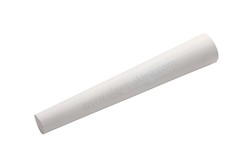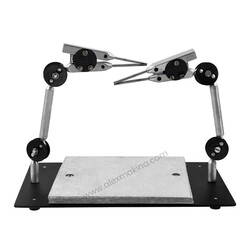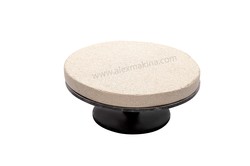Soldering Boards for Jewelry Making Types, Uses, and Heat Resistance
To make attractive, long-lasting materials, use high-quality soldering boards for jewelry manufacturing. Our online store has the most competitive prices on a wide variety of high-quality products. Buy immediately!
Types of Soldering Boards for Jewelry Making
Soldering boards are essential jewelry-making tools, especially during the soldering process. They provide a stable, heat-resistant surface to support the workpiece while also preventing harm to the surrounding components. There are the best types of soldering boards commonly used in jewelry making:
1. Firebrick Soldering Boards
Firebrick soldering boards are built of firebrick, a type of refractory material recognized for its high heat resistance. Firebrick is made of ceramic materials that can endure high temperatures, making it ideal for a variety of soldering applications. Jewelers can choose from several different sized and thickness boards to accommodate their own workstation and project requirements.
2. Ceramic Fiber Soldering Boards
Ceramic fiber soldering boards are composed of lightweight and insulating ceramic fibers. These boards are designed to be extremely heat-resistant and can endure high temperatures encountered during soldering. They are an excellent alternative to firebrick boards for those who prefer a lighter and more portable option.
3. Charcoal Block Soldering Boards
Charcoal block soldering boards are made from compressed charcoal, providing a different kind of surface for soldering jewelry. These blocks are specifically designed for soldering delicate or small pieces of jewelry, as they can be carved or shaped to create custom supports for the workpiece.
Uses of Soldering Boards in Jewelry Making
Jewelers depend heavily on soldering boards, sometimes called soldering pads or soldering blocks, for a variety of soldering and heating operations. The most common uses of soldering boards in the jewelry industry are as follows:
· Providing Heat Insulation and Stability
Soldering boards, often made of materials like ceramic or heat-resistant fiber, act as a protective surface that insulates and stabilizes jewelry pieces during the soldering process. They help prevent direct contact between the jewelry and the workbench, reducing the risk of heat damage or unwanted deformations.
· Supporting Small Jewelry Pieces during Soldering
Soldering boards offer a flat and secure platform for holding small jewelry components in place while soldering. Jewelers can position and arrange delicate pieces precisely, ensuring accurate soldering and minimizing the risk of components shifting during the process.
· Absorbing Excess Heat and Preventing Fire Hazards
Soldering boards have excellent heat-absorbing properties, which help to disperse excess heat generated during soldering. This feature prevents heat from building up in one area and reduces the chances of fire hazards, enhancing safety in the jewelry-making workspace.
Importance of Heat Resistance in Soldering Boards
Heat resistance in soldering boards is of utmost importance for several reasons:
· Withstanding High Temperatures during Soldering
Heat resistance is crucial in soldering boards as the soldering process involves the use of high temperatures to melt the solder and join metals. A heat-resistant board can withstand these elevated temperatures without deforming, melting, or releasing harmful fumes, ensuring a safe and reliable platform for soldering tasks.
· Ensuring Uniform Heat Distribution and Efficiency
A heat-resistant soldering board maintains its structural integrity even at high temperatures, which helps ensure uniform heat distribution across the surface. This uniformity promotes efficient soldering, as it allows consistent heating of the workpiece and solder, leading to reliable and clean solder joints.
· Durability for Prolonged Use
Excellent heat resistance soldering boards are more robust and can withstand repeated exposure to high temperatures without wearing out or degrading over time. The capacity to resist continuous usage ensures that jewelers and craftspeople may rely on the soldering board for various soldering projects without having to replace it frequently, resulting in cost-effectiveness and ease.
Why Choose Alex Machine Soldering Boards for Jewelry Making?
Alex Machine soldering boards are a popular choice for jewelry making due to their high quality and reliability. These soldering boards are specifically designed to withstand high temperatures during soldering and other jewelry-making processes.
Here are some reasons why jewelers often choose Alex Machine, soldering boards:
· High-Quality and Reliable Soldering Boards
Heat resistance: Alex Machine soldering boards are made from high-quality materials that can withstand the intense heat generated during soldering without deforming or deteriorating.
These boards are known for their durability, which means they have a longer lifespan and can be used repeatedly for various jewelry-making projects.
· Smooth surface
The boards offer a smooth and flat surface, which is essential for precise soldering work and for preventing the jewelry piece from sticking to the surface.
· Versatility
They are suitable for various soldering techniques, such as sweat soldering, chip soldering, and more, making them versatile for different jewelry-making tasks.
· Cost-effectiveness
While they may be slightly more expensive than other soldering boards, their high quality and durability make them a cost-effective choice in the long run.
